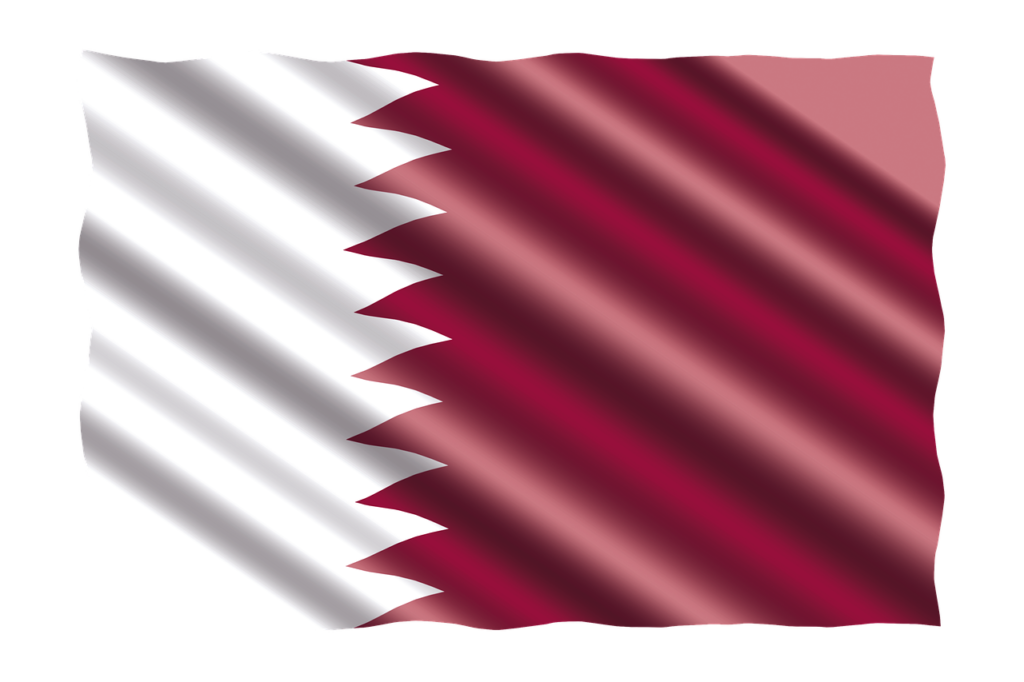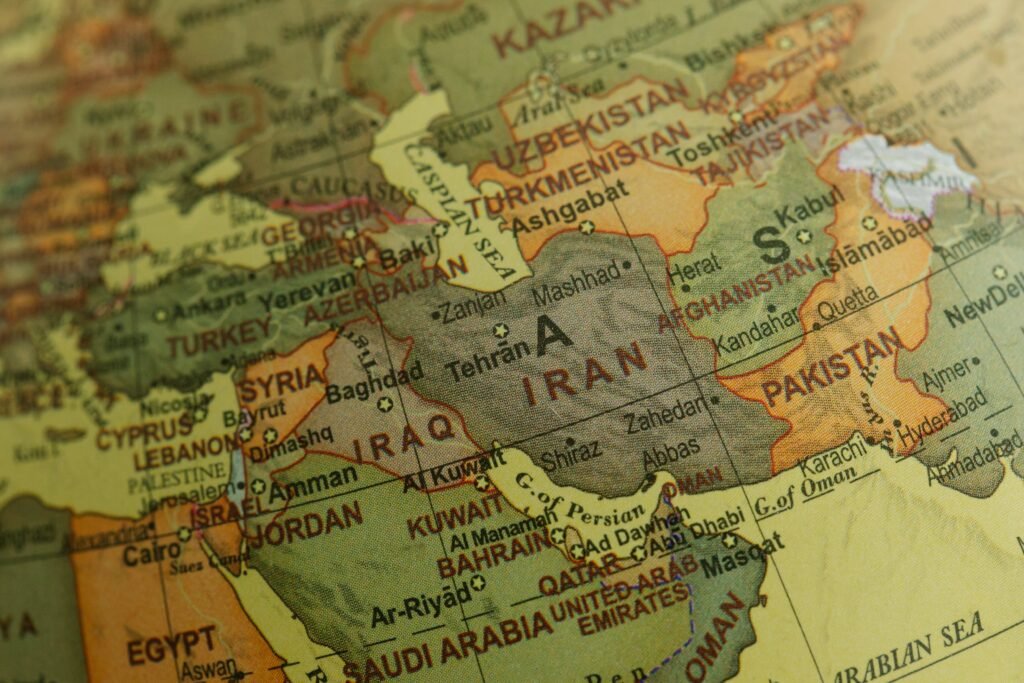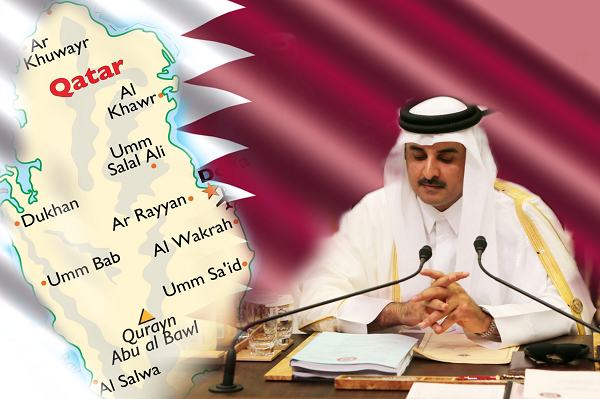Qatar, a tiny but rich country in the Gulf, has been in the news recently for its court giving death sentence to eight former Indian Navy Officers in alleged espionage charge.
This news is in development with the Indian Government assigning high importance to the case, so it would be very early to discuss this issue at this stage.
The core topic of this blog is that Qatar is projecting itself as a mediator to the world. So, the question that comes to mind is, how did this tiny but rich country gain prominence on the world stage? Why do superpowers like the USA trust Qatar as a mediator? How does this mediator role of Qatar undermine the influence of Saudi Arabia and UAE in the region?
Table of Contents
QATAR: A RICH COUNTRY

Qatar’s economy grew exponentially after it discovered a major natural gas reserve to its north. Today it has the third-largest gas reserves in the World. It is one of the world’s leading producers and exporters of liquefied natural gas (LNG).
Qatar has one of the highest GDP per capita figures in the world, primarily due to its energy resources. This has led to a high standard of living for its citizens.
The economy is the most powerful weapon in the World as the USA has many times used its economic power to destroy the countries that do not toe its line.
Therefore, many already influential countries like Saudi Arabia and the UAE in the Middle East are not happy to see Qatar’s growing economic strength in the region.
Qatar also has a bad history of supporting terrorist organizations in the Middle East. Therefore, many countries in the region are concerned about the growing support of Qatar to terrorist groups.
QATAR AND TERRORISM
Qatar has deep contacts with terrorist organizations in the region whether it is Hamas, Al Qaeda, ISIS, Afghan Taliban. In 2014, the U.S. Treasury Undersecretary for Terrorism and Financial Intelligence, David Cohen accused Qatar of running a tolerant terrorist financing environment.
During the Arab Spring, Qatar provided material, financial, diplomatic, and media-related assistance to Islamist Terrorist organizations to overthrow governments in Syria, Libya, and Egypt.
Qatar also funded Jabhat Al-Nusra, the Al-Qaeda affiliated wing in Syria to overthrow Syrian President Bashar al-Assad’s regime.
Qatar hosted the official diplomatic office of the Afghan Taliban in Doha and played a significant role as a mediator between the US military and the Afghan Taliban during the pull-out of American soldiers from Afghanistan.
Hamas’ political leaders reside in Doha and are funded by the Qatari government. Doha has provided Gaza with funding for power needs, public salaries, new apartment buildings, and schools.
Now Qatar operates with terrorist organizations as it has established good contact with them, to mediate between terrorist groups and various stakeholders.
QATAR: THE MEDIATOR
If you remember, Turkey helped broker a UN-backed wheat export deal between Russia and Ukraine. When Donald Trump was in power, he offered to mediate between India and Pakistan on the Kasmir issue. Now Qatar is emerging as a Mediator in the World.
Why do countries like to take responsibility as a mediator? Well, the answer is very simple, it increases the importance of the country acting as a mediator. The mediator wants to project itself as a responsible country on the World stage. However, a mediator needs to win the confidence of the conflicting parties to reach a deal.
By acting as a mediator Qatar also undermines the influence of Saudi Arabia and UAE in the region.
In September 2023, Qatar mediated a deal between the USA and Iran, which saw the release of 5 prisoners in each country and the unfreezing of $6 billion in Iranian funds.
Amid the Israel-Hamas war, Qatar which enjoys good relations with Hamas played a crucial role in the release of 2 American hostages from Hamas. US Secretary of State Anthony Blinken thanked Qatar for its important role in the process.
Qatar has repeatedly played the role of proxy for the USA and West where they cannot engage themselves directly. Qatar was rewarded with the status of a major non–NATO ally for its help in fleeing American service members from Afghanistan.
Qatar also housed the largest USA military base in the region, hosting some 11000 personnel, and in 1992 Qatar signed a defense cooperation deal with the USA. Therefore, the USA trusts Qatar as a trusted mediator to resolve a conflict.
Qatar also played a crucial role in the release of Ukrainian soldiers held by Russia during the initial days of the Russia-Ukraine war.
Qatar very cleverly dodged the World, funded the terrorist groups in the region, established the contacts, and now using those contacts to resolve issues between terrorist groups and terror-affected countries.
REGIONAL RIVALRY: QATAR VS SAUDI ARABIA

Qatar and Saudi Arabia though seem to be ‘bhai-bhai’, but they are not. Qatar’s friendly relations with Iran, funding of terrorism, and interference in the internal affairs of other countries are the reasons for Qatar not enjoying friendly relations with the UAE and Saudi Arabia.
Qatar wants to create an independent space to deal with the World and denies to toe the line of Saudi Arabia.
Qatar’s support for the Arab Spring and the extensive coverage by Al Jazeera of the Bahraini uprisings in 2011 angered Saudi Arabia, as it perceived these actions as part of Qatar’s strategy to use soft power to overthrow the Saudi government.
Qatar also maintains good relations with Iran-backed Houthi rebels in Yemen, which acts as a proxy of the Iran government to attack Saudi Arabia and its oil pipelines.
In 2017, Saudi Arabia, UAE, Bahrain, and Egypt imposed a complete trade and diplomatic embargo against Qatar. Normal relations were restored in 2021.
Despite its small size in the Gulf, Qatar has the potential to influence the political dynamics of the region. The United States maintains stable relations with Qatar, ensuring the security of the regime led by Qatar’s Emir, Sheikh Tamim bin Hamad Al Thani. Qatar can serve as a diplomatic channel for the U.S. in its relations with both Saudi Arabia and Iran, which can be utilized to address regional concerns, including efforts to prevent Iran from acquiring nuclear weapons.
